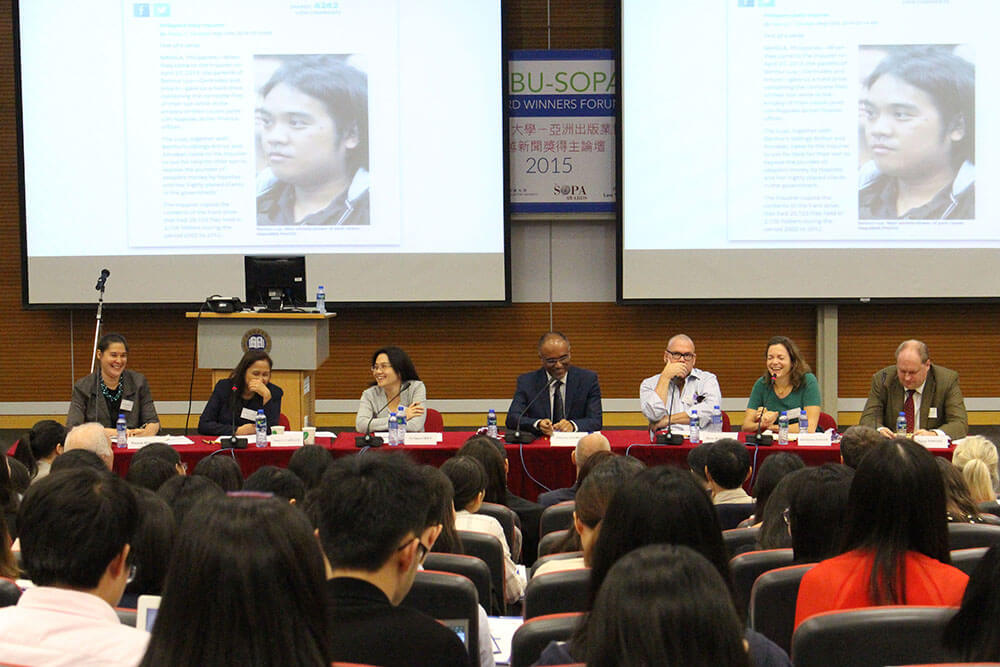
By Chris Wei
Journalists should talk to people who do not have a voice, the East Asia bureau chief of TIME magazine told around 250 students and faculty at a public forum on journalism last Tuesday.
“Unless they talk to you, they have no other way of being able to share their story with the world,” Hannah Beech, one of six forum speakers, said.
Beech is known for her 2103 TIME magazine cover story on a Burmese Buddhist monk that linked him with anti-Muslim violence in Myanmar. The issue was banned in Myanmar, and Beech was not allowed into the country for a year.
Beech was threatened online after the story came out, but she said it was still important to give voice to “both the scary nationalists and people who are unable in horrible circumstances to find remediation.”
“Journalists can speak for the people who cannot have a chance or opportunity to express their story,” said Yi-Shan Chen, the deputy editor at Taiwan’s CommonWealth Magazine, also speaking at the forum.
Reuters’ Special Correspondent Greg Torode said, “Not every story you do will change the world. But you are giving voices to people, and I think that’s a very important point.”
The journalists are three of six SOPA Award winners who attended the forum, organized by Hong Kong Baptist University and SOPA.
“The public depends on the journalists to give them the correct information and empower them to make good decisions. It’s a passion for journalists. It’s a calling,” said Nancy C. Carvajal, a reporter for the Philippine Daily Inquirer.
Didi Kirsten Tatlow, the Beijing-based correspondent for The New York Times, said that “the essential connectedness to life that we all share” drove her to become a journalist.
“Life is a story,” Tatlow said. “If you want to be a part of that narrative flow of life, then journalism can be a pretty good way to do it.”
“What impressed me most is the enormous sense of mission demonstrated by the journalists,” said Ranxin Xie, an HKBU journalism student who attended the forum. “They must be brave to overcome the difficulties and continue their dangerous but rewarding work.”